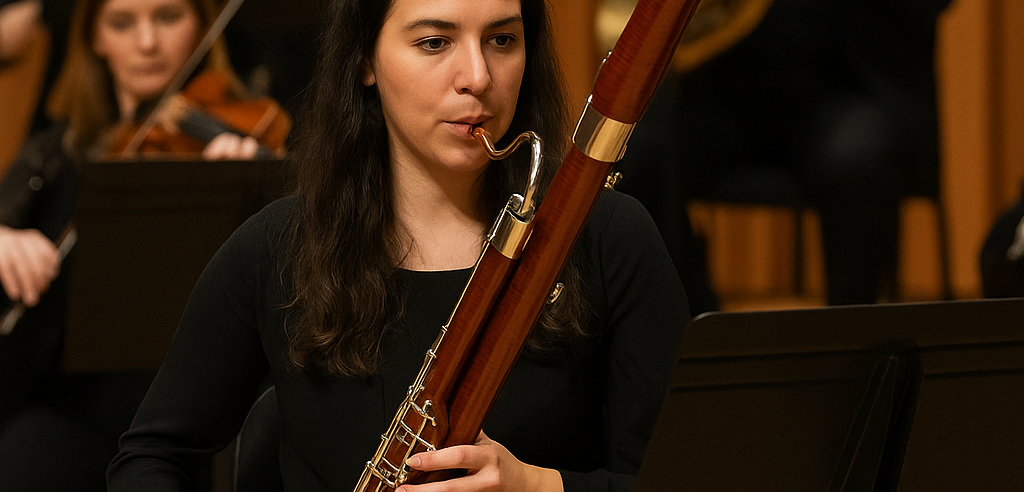The bassoon often carries a reputation for being tough to master, and folks might shy away due to its somewhat intimidating size and complexity. But before jumping into conclusions, let’s break down what makes the bassoon an intriguing instrument.
In the orchestra, the bassoon stands out with its rich, deep voice, providing a unique harmony that melds beautifully with other instruments. It’s not just the cool sound, though. The bassoon has a clever design with keys and bocal that makes it like the Swiss army knife of an orchestra, ready to deliver both melody and harmony.
Folks often get puzzled by the bassoon’s appearance, but its mechanism is a work of art. Think of it as piecing together a giant puzzle each time you play, with the satisfaction of everything fitting just right when you’ve done it correctly. Not only does it look unique, its pitch range and ability to create diverse tones make it kind of a hidden gem in the music world.
There’s this assumption floating around that playing the bassoon is super challenging because of its size. Sure, it’s not a ukulele, but with some patience, anyone can master it. Understanding its quirks is all part of the fun and adds to the personal connection you can develop with your instrument.
The Beginner’s Journey: Facing the Challenges
Beginning to play the bassoon is like any new venture—it comes with its set of hurdles, but that’s no reason to back down. One of the initial challenges is getting used to holding and assembling this wonder of an instrument. It can feel a bit awkward at first with the size and various parts, but with time, handling it becomes second nature.
Breath control is a big deal for bassoonists. You need to manage your breath efficiently not just to play, but to create beautiful, resonant sounds. Alongside this, embouchure—that’s how you shape your mouth around the reed—is crucial. Get it right, and you’ll unlock a world of expressive possibilities.
Now, let’s talk fingerings. They’re not just complicated; they’re the cornerstone of playing the bassoon. With practice, your fingers will learn their way through the intricate dances across those keys. Starting with simple exercises and moving to more complex pieces helps build that muscle memory.
Corners are cut by many people, but developing a good ear particularly tuned to the bassoon can save you from hitting a roadblock. When you’re able to distinguish subtle tone changes, that’s when you start making music, not just playing notes. It’s a skill that takes time but opens up endless potential for creative expression.
Making Learning Accessible: Resources and Support
Finding a good teacher can make all the difference. CLICK HERE to read additional information about how to pick a good music teacher. Look for someone who’s not just skilled with the bassoon, but who also gets where you’re at as a beginner. A teacher who can tailor lessons to suit your pace and style is invaluable.
There’s a wealth of online resources out there to help you. From YouTube tutorials to specialized bassoon websites, these platforms offer everything from basic lessons to advanced techniques. And hey, an extra video or two might throw in some unexpected bonus tips!
Connecting with others is key. Whether through online forums or community meetups, finding a group of fellow bassoon enthusiasts can provide support and encouragement. Sharing experiences with others can also motivate you to stick with it even when things get tough.
Let’s not forget the handy tools that can aid your learning journey. Metronomes, practice apps, and instructional books are great for establishing rhythm and technique. They act like personal trainers, keeping you focused and on task.
Embrace the Bassoon: Progressing from Beginner to Intermediate
Joining an ensemble can really boost your skills. Playing with others is a great way to refine your technique and learn how to blend your sound within a group. You’ll not only improve faster, but you’ll also gain confidence from performing with peers.
There’s a whole world of music out there just waiting to be explored. Tackling a varied repertoire, from classical pieces to modern compositions, keeps your practice sessions exciting and helps you grow as a musician. Challenge yourself with new styles and genres.
Setting a regular practice routine is vital. Consistency helps reinforce what you’ve learned and prevents you from slipping back into old habits. Even short, daily practice sessions can lead to significant improvements over time.
It’s crucial to set realistic goals and celebrate each milestone you achieve. Whether it’s mastering a challenging piece or playing with an ensemble for the first time, every success deserves recognition. This keeps your motivation high and your commitment strong.





